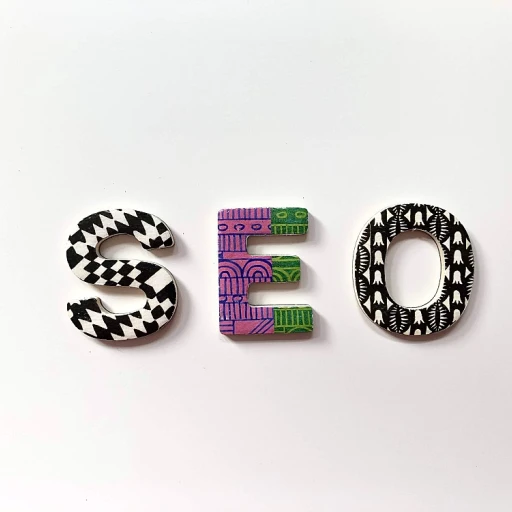
Understanding User Experience as a Ranking Factor
Demystifying User Experience as a Ranking Factor
User experience, also known as UX, has taken center stage in the vast and dynamic world of Search Engine Optimization. Leading search engines like Google have started to prioritize websites that offer a seamless, engaging, and valuable experience to visitors. This paradigm shift underscores the importance of UX in securing prominent positions on Search Engine Results Pages (SERPs). A site's ability to captivate, retain, and facilitate user interaction is now intrinsically linked to its search ranking potential.
The Nexus Between UX and SEO Metrics
At its core, user experience is a composite of various factors, including site speed, navigability, content relevance, and mobile-friendliness—each playing a pivotal role in the algorithms that dictate search rankings. For instance, the introduction of Google’s Core Web Vitals has further cemented UX as a critical SEO performance metric. These vitals—measuring loading performance, interactivity, and visual stability—are quantifiable indicators of a site's UX quality. Websites that score high on these metrics not only gain a competitive edge but also signal to search engines their commitment to user satisfaction.
User Engagement as a Reflection of UX Efficacy
Engagement metrics such as bounce rates, time on site, and pages per session are now considered valuable proxies for user satisfaction. A low bounce rate often reflects a site's success in meeting user needs quickly and effectively—a testament to the power of optimized user experience. High engagement levels are not coincidental; they are a direct outcome of meticulous UX design and implementation. Analyzing these metrics allows stakeholders to gauge a site’s user-centric performance, fine-tuning strategies to further enhance visibility and ranking.
Integrating UX in SEO Strategies
In today's online landscape, integrating UX into SEO strategies is no longer optional, but indispensable. It is a holistic approach that requires a thorough understanding of the target audience and their digital behaviors. By crafting user journeys that align with user intent and expectations, SEO professionals can ensure that their content not only attracts but also retains the visitors—cultivating a loyal user base that search engines are eager to champion.
As we continue to unearth the symbiotic relationship between AI and UX, the significance of personalized user experience comes to the forefront. With the advancement of artificial intelligence in SEO analytics, the capabilities to customize user interactions have grown exponentially. This transformation is reshaping the way we approach website optimization and user satisfaction, ultimately influencing the trajectory of future SEO trends and practices.
The AI Revolution in SEO Performance Analytics
Unpacking the AI Revolution in SEO Metrics
The advent of Artificial Intelligence (AI) has been a game-changer for search engine optimization (SEO). Gone are the days when SEO specialists relied solely on traditional analytics to understand search behaviors. Today, AI-driven tools analyze website performance with an unprecedented depth, offering insights far beyond the surface level. AI’s impact on SEO is transformative, allowing for a nuanced understanding of user intent and behavior, which in turn feeds into the algorithms that rank websites.
Breaking Down AI-Powered SEO Tools
AI technology, through machine learning and data processing capabilities, has given rise to a suite of sophisticated SEO tools. These platforms can discern patterns and trends that human analysts may overlook. From predictive search behavior models to automated keyword research, AI empowers SEO experts to refine their strategies dynamically. Companies now benefit from these insights, leveraging them to improve their search rankings and online visibility.
Real-Time SEO Adaptations with AI
The real magic of AI in SEO is in its ability to make real-time adjustments. With AI applications, algorithms can quickly react to changes in search patterns, suggesting immediate actions to maintain or improve rankings. By analyzing vast datasets in moments, AI-powered SEO tools bring agility to marketing campaigns that were once reactive, making them proactive and highly responsive to the shifting digital landscape.
Increasing Precision in Search Analytics: AI takes precision to a new level in SEO performance metrics. Traditional analytics offered insights based on historical data, but AI provides predictive insights, allowing strategists to anticipate changes and engineer their content strategy accordingly.
Enhancing User Experience Through Data: AI doesn’t just predict outcomes; it enhances user experience by allowing SEO tools to understand user queries in a more nuanced way. AI's deep learning algorithms process natural language queries, and image searches, potentially revolutionizing the way search engines understand and respond to user needs – a point that goes hand-in-hand with optimizing user experience, as discussed previously.
As AI continues to evolve, SEO practitioners must remain at the forefront of these technological advances. They need to be aware of how these tools can shape the metrics they depend on to measure performance and tailor user experiences. Embracing AI is not just about keeping up; it's about staying ahead in a competitive digital landscape.
Numbers don't lie, and the impact AI has on user experience metrics is quantifiable. Recent statistics indicate that websites employing advanced AI measures for SEO are observing a substantial uplift in their user engagement metrics. This is a trend that can no longer be overlooked by digital marketers and SEO professionals. The enhanced capabilities of AI allow for more fine-tuned adjustments to strategies, leading to improved performance metrics and ultimately, a more relevant and optimized user experience.
Using AI as a tool for SEO optimization means adapting continuously and making data-driven decisions. By understanding the richness of data available through AI, savvy SEO practitioners can unlock a new realm of optimization potential. Of course, AI in SEO is not a panacea; it is a powerful aid that must be used strategically within the broader context of SEO best practices.
Impact of AI on Tailoring User Experience
Blending AI Insights for Enhanced User Journeys
The advent of artificial intelligence in the realm of SEO has marked a paradigm shift in how we approach user experience (UX). Websites can now leverage AI-driven analytics to dissect vast quantities of user data, yielding powerful insights into customer behavior. This data-centric approach allows for the customization of user journeys, ensuring that each visitor receives a personalized experience tailored to their preferences and search intents. By analyzing metrics such as click-through rates, session duration, and bounce rates, AI tools can help webmasters create a seamless and intuitive UX that resonates with their audience.
Personalization at Scale with AI Algorithms
Personalization is no longer a luxury but a necessity in enhancing UX. AI excels at dissecting large datasets to predict user preferences and serve them with content that aligns with their interests. This goes beyond just recommending similar products; it means intuitively guiding users through a webpage, altering layouts, and adjusting content in real-time based on user interactions. This level of personalization, driven by sophisticated machine learning algorithms, not only boosts user engagement but also contributes to higher search engine rankings, as it is directly linked to user satisfaction.
Refining SEO Strategies with Predictive User Modeling
Artificial intelligence has moved the needle from reactive to proactive UX optimization. Predictive user modeling harnesses AI to forecast future behavior based on past interactions, allowing for anticipatory adjustments to SEO strategies. Through this method, businesses can pinpoint potential friction points on their websites before they affect user experience. By preemptively tweaking SEO elements to enhance navigation or load speeds, companies can significantly reduce bounce rates and improve the overall effectiveness of their SEO efforts, as users are more inclined to engage with content that meets their expectations.
In the quest for mastering the interplay between UX and SEO, integrating AI into the process is imperative. For those eager to delve deeper into harmonizing AI with contemporary SEO practices, fine-tuning voice search SEO stands as a testament to the power of AI in sculpting the future of digital marketing.
Key Developments and Future Trends in AI-Enhanced UX Optimization
Exploring AI-Driven SEO: Innovative Tools and Strategies
The integration of artificial intelligence into search engine optimization (SEO) has paved the way for innovative tools that provide unprecedented insights into user experience optimization. Machine learning algorithms can now predict user behavior, delivering personalized content that boosts engagement and, in turn, rankings. Notable tools harnessing AI's power allow for real-time adjustments to content strategies, keeping websites consistently at the forefront of SEO performance metrics.
Personalization at Scale: The Tomorrow of UX Optimization
AI's capability to analyze vast datasets has opened the door to personalizing user experience on a scale previously deemed impossible. By leveraging user data, websites can provide tailored experiences to audiences, thereby improving key performance indicators such as bounce rate and time on site—factors that search engines like Google consider for ranking. The future promises even greater sophistication in delivering content that resonates with individual preferences and search intents.
Voice Search and AI: Crafting Conversational Content
The surge in voice search usage necessitates a shift towards conversational content. AI tools are at the forefront of this transition, helping to optimize content for natural language queries. This evolution aligns perfectly with the user's tendency to use voice assistants for internet searches, ensuring that websites cater to this growing demand and maintaining their SEO edge.
Predictive Analytics: Anticipating User Needs
Anticipating user needs and preferences is a critical component of successful SEO. Artificial intelligence excels in this realm, using predictive analytics to forecast trends and user behaviors before they become apparent. SEO strategies enriched with AI-powered predictions are far more nimble, allowing for quick adaptation to the ever-changing SEO landscape. This proactive approach is invaluable for maintaining high user engagement and optimizing for core web vitals, a group of factors significant to Google's ranking algorithm.
Final Thoughts: AI's Role in Shaping SEO's Future
As we delve deeper into the symbiotic relationship between AI and SEO, it's clear that artificial intelligence is not just a tool—it's a visionary component transforming the very fabric of SEO strategy. Companies that embrace AI's potential to enhance user experience will undoubtedly lead the charge in the digital landscape. Simultaneously, those that overlook these developments may find themselves at a significant disadvantage. With AI's trajectory only rising, its role in sculpting an adaptable, user-centric online universe will be pivotal in the success of future SEO endeavors.













